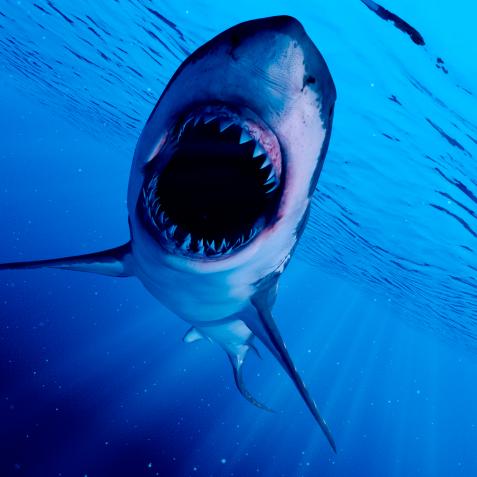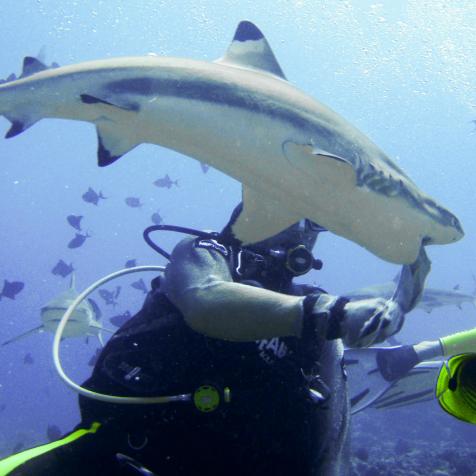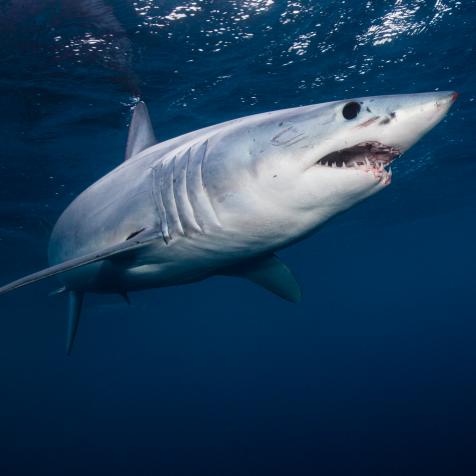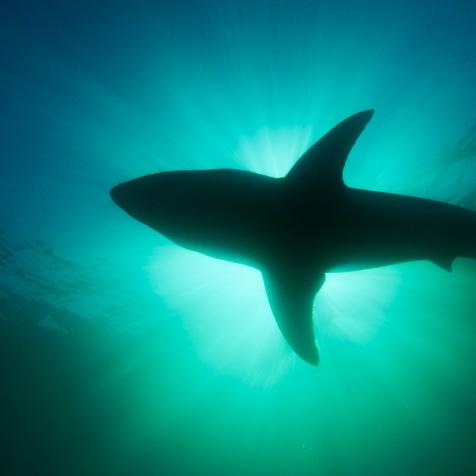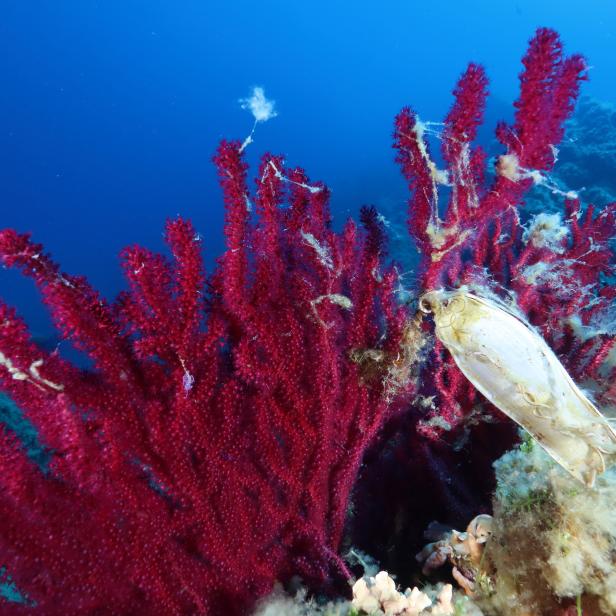
Arnaud Abadie
The Great Easter (Shark) Egg Hunt

In the United States, we know that every April brings a giant bunny hiding an array of colorful eggs that vary in size, color and texture. But did you know the ocean’s got its own version?!
It’s a rabbit fish! In this case, the rabbit fish (Chimaera monstrosa) is a species of ghost shark, which can be found in the Mediterranean Sea. They are not, however, the only sharky-eggy-layers around. These sharky relatives are chondrichthyans, which include the aforementioned ghost shark (aka chimaeras), the flat sharks (aka rays and skates- think of rays without the spine) and the shark-sharks (you know). Among these chondrichthyans are those that lay eggs, which is made possible through a mechanism called oviparity (oh-vi-pair-it-eeeee).

Dr. Dave Ebert
In this mode of reproduction, once the chondrichthyan mother has deposited her egg, the embryo inside is left to eat all the available yolk. Once that has happened, the former embryo now emerges in fully baby shark mode, which in science terms is more commonly called a pup. All ghost sharks and skate reproduce in this mode.

Dr. Dave Ebert
Chondrichthyan mothers like the Easter Bunny, must make their eggs hard to find, but unlike the Easter Bunny, these chondrichthyan mothers REALLY don’t want you to find their eggs. In the case of chondrichthyans eggs, they are typically hidden in rock crevices, seaweeds, or even a muddy sea floor. A recent study has taken advantage of one more similarity that chondrichthyan eggs have to Easter Bunny eggs, and that’s their variation in size, color, and texture.

Dr. Dave Ebert
Shark Week alumnus, Dr. Dave Ebert is one of several coauthors who teamed up for an EGG-citing paper about chondrichthyan egg cases of the Mediterranean and Black Seas. This study, recently published in The European Zoological Journal, has CRACKed the case of chondrichthyan egg for this region by getting down to the spEGGcifics. With 35 years of data and 461 specimens to review, this team of researchers could design an identification key.

Dr. Dave Ebert
The ability to identify egg cases down to the species they came from is especially vital in developing a clearer picture of the chondrichthyans present in these areas. That’s because sometimes these egg cases are the only evidence of chondrichthyan’s presence in the area.

Dr. Dave Ebert
Consequently, their work confirmed at least 22 oviparous species of Chondrichthyan within the Mediterranean and Black Seas. They even found a new species of water bunny! Hydrolagus mirabilis, for which the etymology of its genus name (the first part of it’s full scientific name) means water bunny.
During the study, it turns out that H. mirabilis, was extremely hard to find. Since hatched egg cases often wash up on shorelines this Easter, why not expand your egg hunt to beach! Although you may not live near the Mediterranean or Black Seas, there really is a group looking for your help. The best thing about the Shark Trust’s citizen science project, called the Great Egg Case Hunt, is that you can help all year long!









